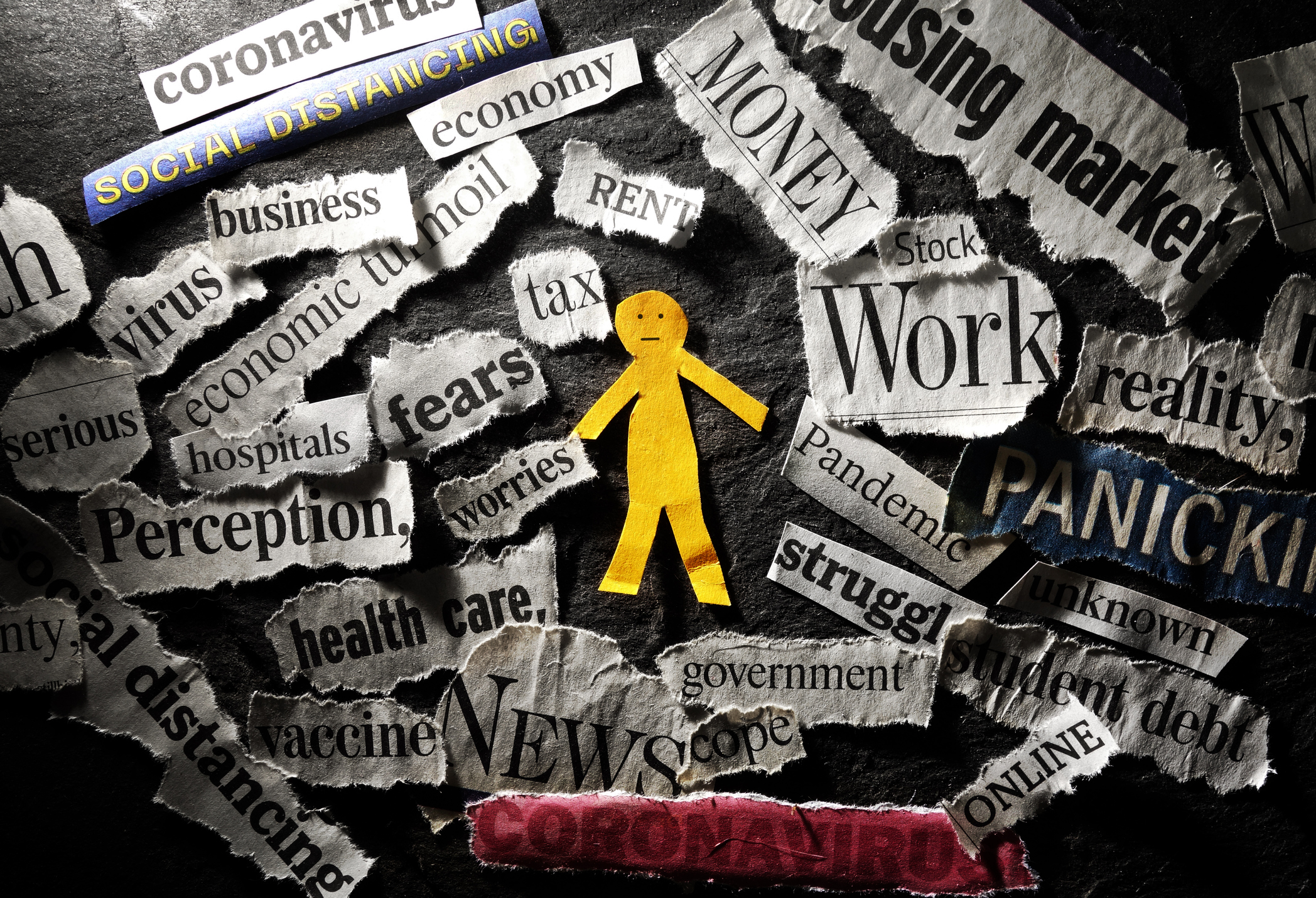By Kathy Aebel-Groesch, MSW, LCSW
It will come as no surprise that anxiety has increased during the COVID-19 pandemic (not to mention the political and social climate). Even those of us who have never experienced anxiety may be finding ourselves affected.
Anxiety can affect how we function in daily life–imagine yourself in a situation where you have felt extremely anxious…
- How did you feel physically?
- How clearly could you think or concentrate?
- How thoroughly could you have learned important information or skills?
The interdisciplinary care team at the dialysis clinic is there to support you if anxiety could be affecting your ability to manage your dialysis treatment plan.
How common is anxiety?
- 31% of adults experience anxiety disorder at some point in their lives
- COVID may increase risk of mental illness, including anxiety, by as much as 50%
- 4 in 10 adults reported symptoms of anxiety or depression during the pandemic
People with chronic kidney disease may be at a higher risk of experiencing anxiety. Research estimates as many as12-52% of people with end stage kidney disease have anxiety disorder at some point.
Common Signs & Symptoms of Anxiety
Physical
- Dizziness
- Flushing
- Perspiration
- Dry mouth
- Headache
- Muscle ache/tension
- Stomach upset
- Diarrhea or constipation
- Sleep problems
Psychological
- Excessive worry
- Irritability
- Fatigue
- Strange dreams
- Racing thoughts
- Forgetfulness
- Poor concentration
- Memory loss
Emotional
- Aggression
- Agitation
- Restlessness
- Over-reaction to a situation
- Impulsivity
- Trouble making decisions
Risk factors:
Some medical conditions are associated with anxiety. These include:
- Pulmonary disease
- Chronic kidney disease
- Hyperthyroidism
- Migraines
- Chronic pain
- Dementia
- Parkinson’s disease
- Seizure disorder
- Gastrointestinal conditions
Some psychological conditions like depression and substance use disorder, and personal experiences, such as trauma or long-term stress, can increase the risk of developing anxiety.
It’s no wonder the pandemic has elevated rates of anxiety—we’re all in the middle of global long-term stress!
Impact of anxiety on managing ESKD
Some people may experience anxiety while adjusting to a new ESKD diagnosis or learning a new treatment type, like home dialysis.
Anxiety can make it more difficult to remember which medications to take and when, or what foods are safe to eat with your renal diet. Anxious feelings can lead some people to feel uncomfortable sitting still during dialysis. People who dialyze at home may find it hard to follow each step of the dialysis process or manage supplies.
Your dialysis care team can help!
Your dialysis team, along with your other medical providers, can help you manage anxiety. Your nephrologist or primary care provider may refer you to psychiatrist or prescribe medication to help with symptoms. It’s important for healthcare providers to monitor all medications for safety. Some medications, like Xanax or Valium, are known to be addictive, so they are intended for short-term use. Your nurse can help explore whether medications or other medical conditions could be contributing to symptoms of anxiety. Your dietitian can suggest healthy eating tips that can help with managing stress.
Counseling options
Counseling is a safe and effective treatment for anxiety. Cognitive behavior therapy (CBT), mindfulness and visualization exercises help to recognize and manage symptoms of anxiety. The social worker at your dialysis center is trained to provide this type of counseling.
Other types of therapy can be provided by a behavioral health professional, such as a psychologist or licensed clinical social worker, in a private setting.
Lifestyle changes, such as exercise, sleep hygiene, elimination or reduction of caffeine and nicotine, and limiting social media can improve symptoms anxiety.
Social connections can boost our ability to cope with stress and promote well-being. Interacting with family, friends, and others who are living with ESKD is an important part of a healthy lifestyle. If not possible to gather in person, using a video conference or phone can be the next best thing. Virtual support groups like those offered by the Renal Support Network, Dialysis Patient Citizens, and the Home Dialysis Central Facebook group can bring you together with a community of others who are managing ESKD.
Resources:
- Therapist aid: www.therapistaid.com
- National Alliance on Mental Illness (NAMI): 800-950-NAMI (800-950-6264)
- Anxie and Depression Association of America (ADAA): 40-485-1001.
- National Institute of Mental Health (NIMH): 866-615-6464.
- Centers for Disease Control and Prevention, Division of Mental Health (CDC); 800-CDC-INFO (800-232-4636)
- www.anxiety.org
- Renal Support Network – www.rsnhope.org/health-library/when-fear-wont-go-away-anxiety




